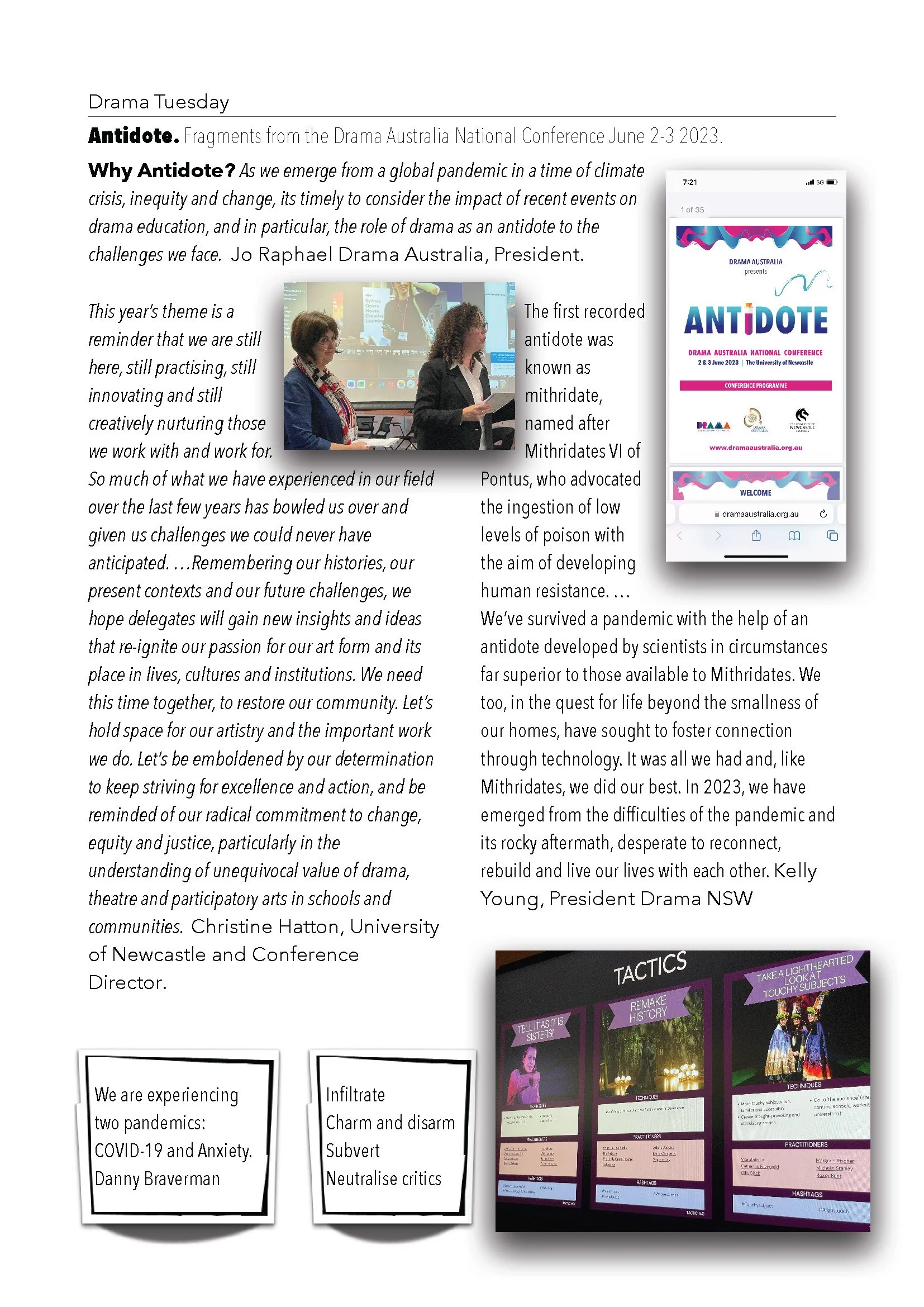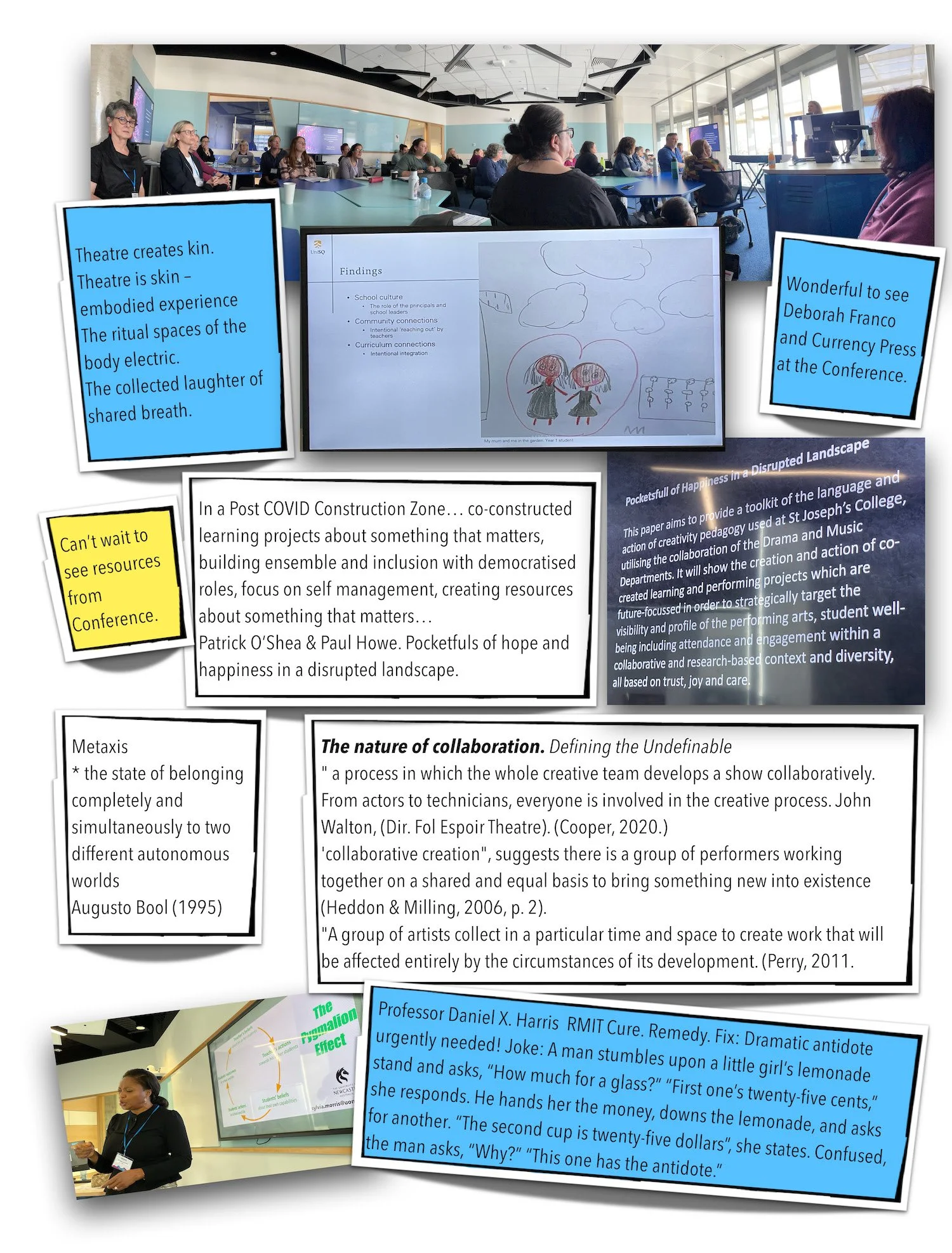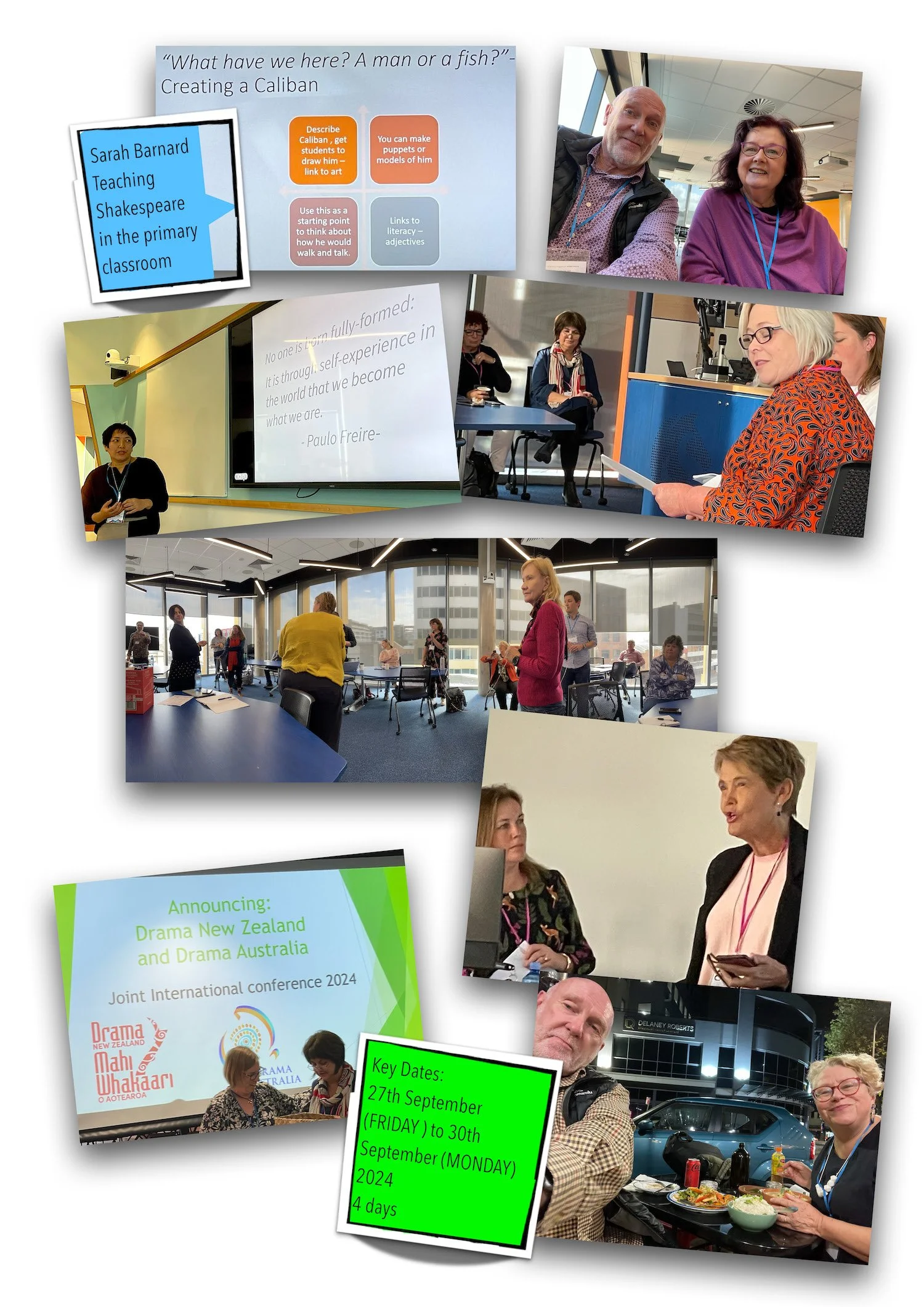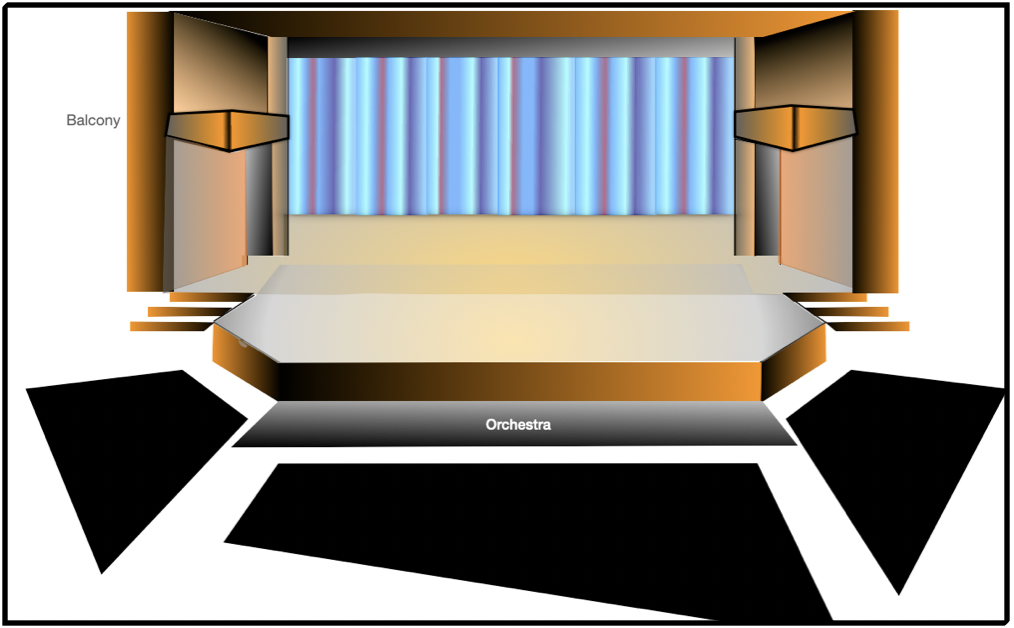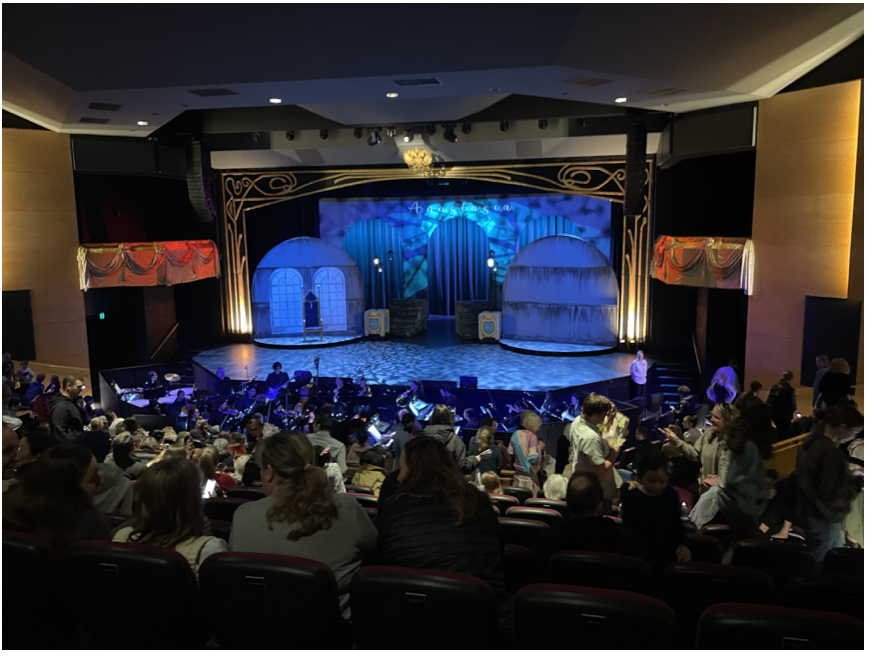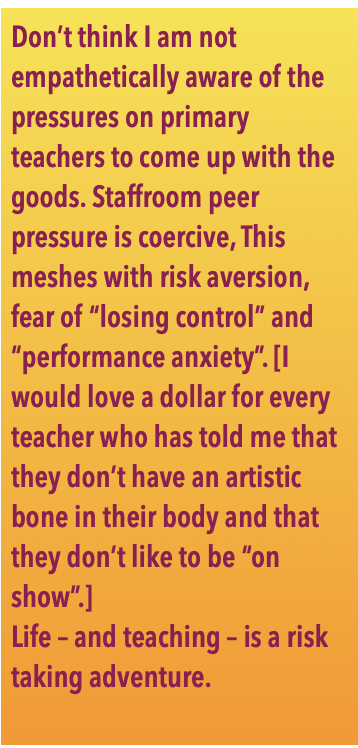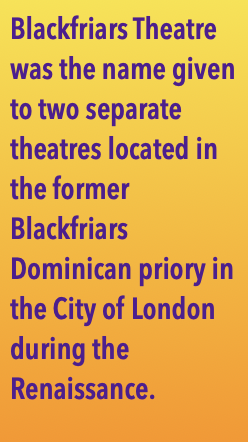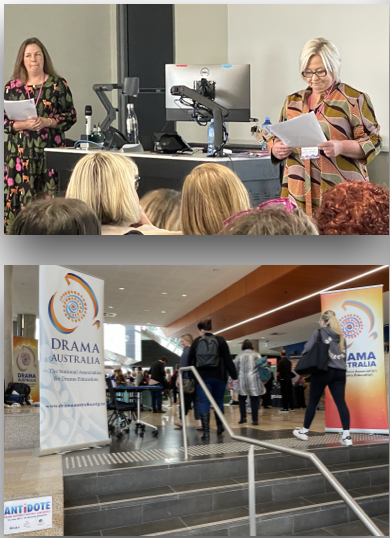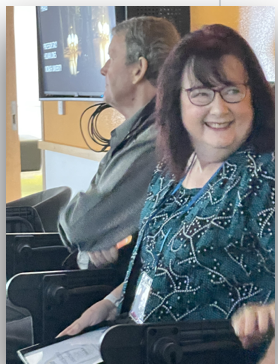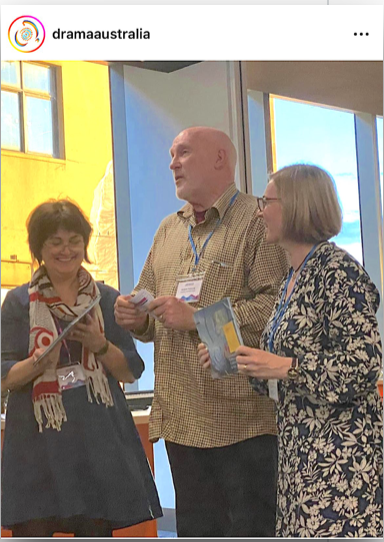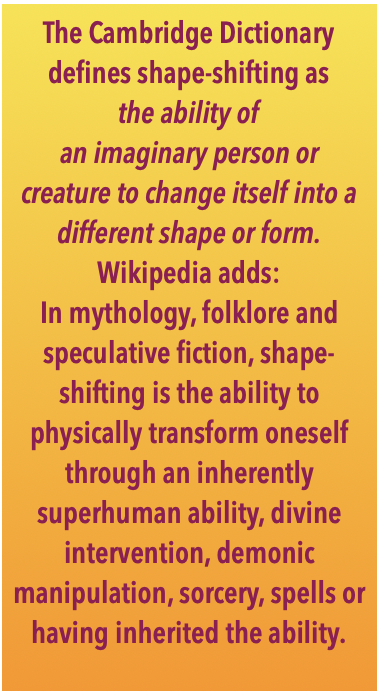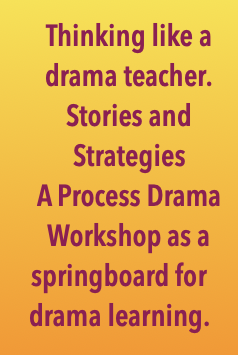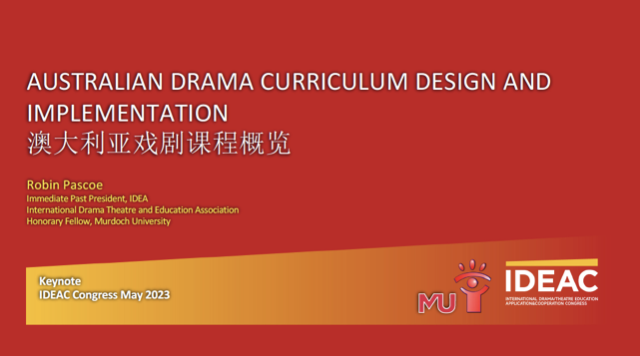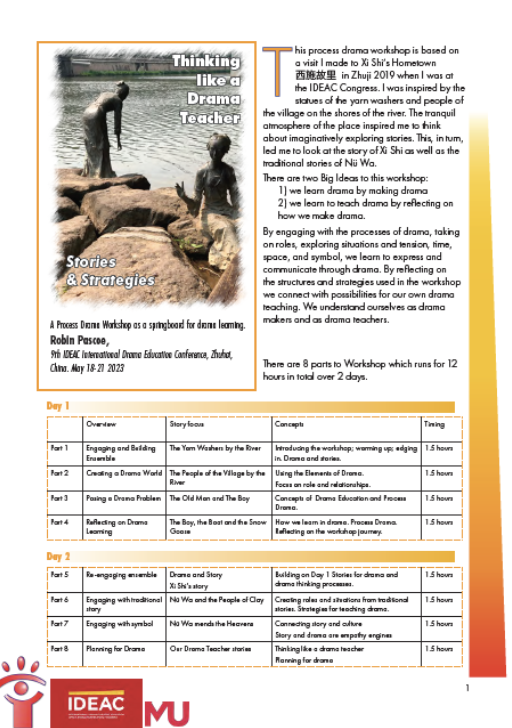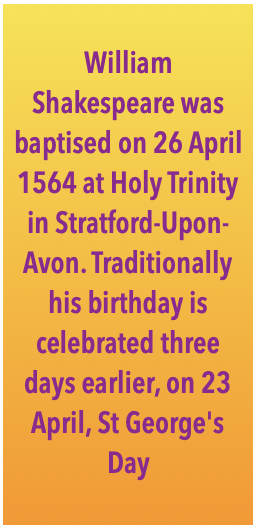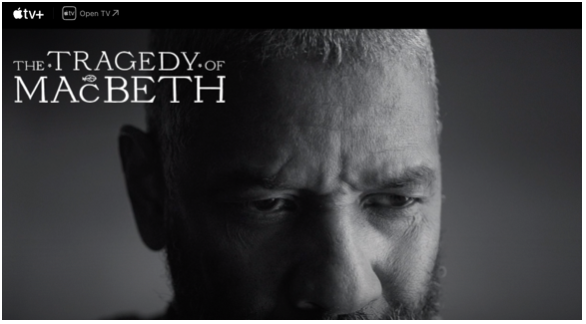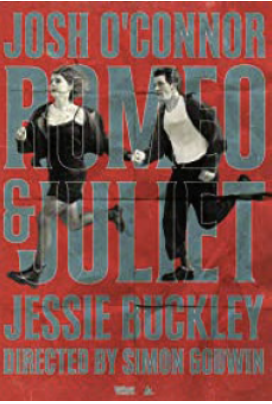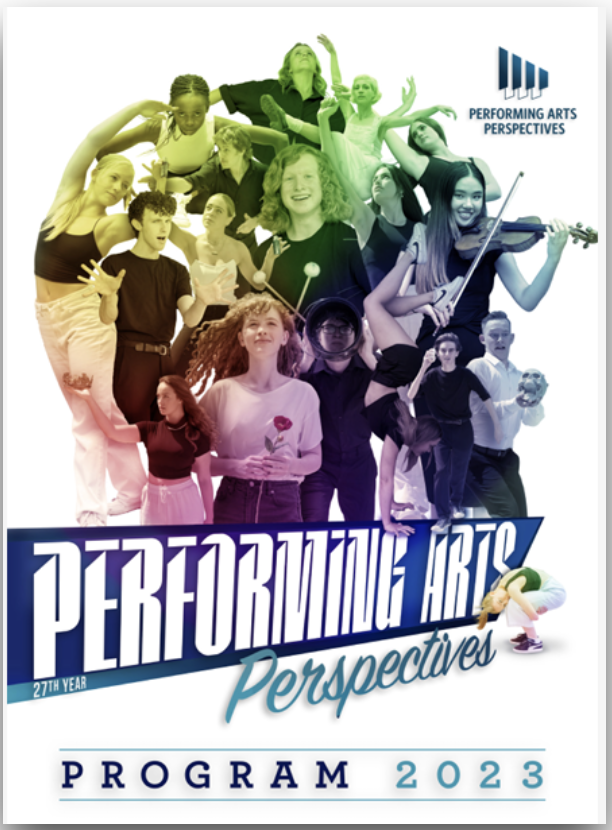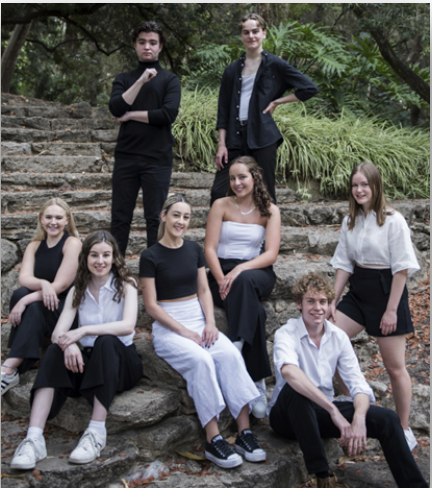Drama Tuesday - An afternoon matinee
/Liz and I went to the St Mary’s Anglican Girls School production of Anastasia The Musical. There are Old Girl connections with the school for Liz at different levels: Liz was a scholarship girl at the school when it moved to the Karrinyup site; the director of the production is the daughter of Liz’s best friend from St Mary’s and has just moved to teach there and this is her first production.
Effective production with pace and energy, advancing the narrative with good drive and efficient scene changes with two small revolves on stage. Strong singing performances Anastasia The Musical is not a well known production and I haven’t seen it produced before. The music by Flaherty and Ahrens, bubbles along pleasantly.
This is only the second time I’ve been at the Lady Wardle Performing Arts Centre; the other time was for a BlackSwan production of Cosi.
Two interesting lines of thought: the venue and the choice of production.
School venues
There are now a significant number of schools in the Perth region with these large scale venues. This trend reflects commitment to performing arts and it is interesting to see the design approach.
This theatre seating 518 in three blocks that fan wide from the stage. The stage is wide and projects into the audience though is not a full thrust stage. As I sat in the audience, seating quite heavily raked above the action, I kept thinking about the challenges for directors There’s quite a distance to the wings from centre stage and the action is projected forward. There was a tendency for actors to move downstage centre in every scene. The nicely presented stage images relied on a sense of symmetry. The Juliet balconies on either side provide opportunities. But the width of the stage presented a need for brisk exits and entrances to maintain the pace.
The sound balance with the orchestra being amplified also presents challenges.
Production Choices for Schools
My other line of thought was about the choice of Anastasia. Not because it was new – we are always looking for fresh and interesting productions to challenge and excite our students. I was thinking about the issues of choosing plays for single gender schools, like St Mary’s. This production brought in four males students from other schools (one from Liz’s school).
But during the first act, I noticed that the action resolved largely around four roles – one female, the role of Anastasia; the other three were male. There was a fleeting scene with the Dowager who figured strongly in Act 2. There were many other on stage chorus roles, plenty of colour and spectacle, yet the dramatic action was narrowly focused. The second act added developed the role of the Dowager and added another extended major female role. As a script, Anastasia is actually a star vehicle. This production relied very much on the strong male leads with relatively limited roles for female students.
But this script is indicative of the dilemma faced by many teachers selecting productions. The balance of roles for students often doesn’t reflect the reality of enrolments.
Some single gender schools, resolve the issues by partnering with other single gender schools. Even in co-educational students, particularly where there are more female students than males, there are still issues about the balance of roles available.
What is the best repertoire for single gender schools?
What is the best music theatre repertoire for single gender schools?
Or for schools in general?
This is particularly an issue in choosing plays that provide strong roles for female students. We all know how difficult it can be if you want to stage Shakespeare’s plays.
You could take the line (as one feisty drama teacher did) and simply cast from within the actors available in the school and have some students play cross gender roles. [Certainly, in my schooling in an all boys school in another century we did that and my first on stage role was as one of the “Sisters, Cousins and Aunts” in The Pirates of Penzance.] Earlier this year we saw the John Curtin College of the Arts production of Jesus Christ Superstar with female leads playing the role of Jesus. There is the argument for “blind casting” made. But the climate for arts education is supercharged and there are new challenges for all.
Quick snap of the theatre at the end of the production as the audience were filing out after applause.
Drama Thursday - The Gingerbread Man Visits Year 1
/Thursday is assembly day at D. Primary School. It’s Room A3 Year One students’ turn. As the projected slide announces, they are performing The Gingerbread Man.
The assembled school sing along to the recording of the upbeat Australian National Anthem with the didgeridoo intro. The Student Councillors lead the presentation of honour certificates. There’s a few “dad” jokes from the Deputy Principal, innocent and silly, drawing groans from the assembled audience. The school song (with the odd scansion) is sung conducted by the enthusiastic music teacher. The student and teacher audience members sit in plastic chair rows. Parents edge the covered area shivering a little in the crisp air.
The Year 1 students have been sitting on the stage spread in a regular checkerboard pattern. They have conned their lines. Rehearsed ( William, with rolled eyes, tells us that the only thing they’ve done this week is rehearsed their lines).
Narrators line up to step on the box behind the podium. Other students sit in clumps in costumes improvised by busy mums. The little old couple sit awkwardly next to their cardboard box painted as an oven. Busy Year six students scurry in and out thrusting microphones at the line speakers (sometimes getting the right person). Lines are read or stumbled past. At one point the teacher rushes from her seat in the front row to help one of the narrators turn the A3 size script. The chase of the gingerbread man ambles aimlessly round and round. Then suddenly it’s finished.
There are more certificates.
The Year Ones thank the audience and sends them back to class.
Parents rush the stage as the photos are taken.
Like a released spring the Year Ones cavort and run free on the stage. There’s a frenzy of relief and exuberance.
The drama teacher in me wonders: is this as good as it gets!
There’s an obvious mismatch of expectations. Here the hope is performance. The way the audience are ranged, the structuring, the reliance on script (tired, cliched, word driven), set up a performance paradigm. The drama experience is narrowed and limited. Controlled.
How could it be different?
Let’s begin by saying to the assembled audience: today we are not performing a play to you; we are sharing our drama making experience.
Then: teacher in role of leader begins a moved visualisation with all the children (edging into the drama experience): Once there was a time when we were making gingerbread. Can you smell the things we need to make the gingerbread. Can you feel the flour in our fingers? Can you smell the ginger…? Let’s put these ingredients into a big bowl and stir the all up
Placing two chairs: In this telling of the story there was an old man and an old woman. Can you imagine them, sitting in their chairs. They were very very old but still loved life. Who would like to be in these roles? Invite two children to become the roles. Add a couple of simple props to indicate the roles: a hat and a scarf.
How do you think they might sit? How might they move? How could we show that they are very very old?
They loved gingerbread. Do you like gingerbread? What does it taste like?
What do you think they might say about their gingerbread?
And so on through the emergence of the gingerbread man from the oven; the bolshie challenge to authority; the escape; the fox and the river. Use simple storage is such as still image/tableau. When it comes to the chase, use slow motion. Map the chase specifically. Create and add new roles. Engage students in drama making.
In other words, shift the whole paradigm.
Of course, it’s risky.
Of course, it doesn’t have the element of control. Things may happen that you don’t anticipate.
But, ask important questions
Who is the drama for at this age?
What is the relevant learning?
How do we make this age appropriate and developmentally appropriate learning?
There are a couple of questions to answer.
What will the assembly audience see!
They will see and hear process rather than product. Or a different kind of product. And that needs explaining/preparing.
Isn’t this putting the teacher more important than the students. It’s not about me. It’s all about the kids!
That question underlines the issue of understanding the role of the teacher as the co-constructor of meaning in learning.
I hear the protests: this isn’t much of an assembly item for the rest of the school!
How do we know if it hasn’t been tried? How do we school the school about doing things differently. There is a time and a place for the “performance of drama”. But there is also a place for celebrating the immediacy and joy of the drama experience itself. And that is what truly matters most.
Was it a good experience for the students?
What did they learn?
Drama Tuesday - Giving Voice to the silenced
/In my last post, I was immersed in the stews of Elizabethan London in Mat Osman’s The Ghost Theatre. This post jumps forward to Restoration Drama but is still immersed in the roiling hotpot of London theatre in a novel that features Aphra Bean told through the eyes of a fictive young woman named Tribulation Johnson. It's 1679 and the fierce and opinionated Tribulation Johnson is catapulted into the tumult, politics and colour of Restoration London and its lively theatre scene. Cast out from her family as ungodly and unworthy - Tribulation arrives in London on her own dressed in her dead brother’s clothes. Through Aphra, a cousin, Tribulation is immersed in the seedy, shabby yet fascinating world of the Dorset Garden Theatre, owned by the King’s brother, the Duke of York, one of the two permanent theatres in London. The other, owned by the King, Charles II, is Drury Lane. She meets the famed and the notorious. The story is redolent with names: writers and playwrights such as Samuel Pepys, Dryden; actors such as the Bettertons; politics; spies; treachery. And, of course, Aphra Bean herself. They are all brought to life through lively writing with strongly researched attention to detail.
The strength of this novel by Karen Brooks is the potent recreation of life in Restoration Theatre. The backstage detail, the technical and personal interweaving of the roles of the prompt, the actors and the audience, the cross referencing of plays and playwrights, provide a plausible and interesting imagined portrait of Restoration drama.
More than that, the story weaves in a powerful polemic about voices that are heard or suppressed. The subtitle of Brook’s title – A Woman Writes Back – signals the key theme.
This short excerpt from an imagined conversation between Aphra and Tribulation crystallises a challenging discussion point for drama students.
‘I’ve always believed,’ said, Aphra firmly, indicating I should pull up a chair, plays ought to be political – especially, when the time calls for commitment. As a woman, I cannot argue in Parliament or even in a coffee-house. I cannot vote in a guild nor run an office. I cannot take arms but I can write. My plays - the words I put in the characters' mouths, the plots, and themes, whether they are couched in comedy or drama, are like secret instructions to the people: instructions in things it's impossible to insinuate into them in any other way?’
Pages of scrawled notes, drafts of new plays and other writings fanned the surface of her desk. ‘You see yourself as teaching the audience, giving them lessons they don't even know they're having,’ I said as understanding dawned. Some plays were so silly, so salacious and outrageous, and yet Aphra was right. Just because something was humorous or bawdy didn't make it less profound. That was the shallow dressing in which deeper meanings were buried.
Aphra smiled. I loved her smile, the way it made her eyes glimmer, dance in the soft light of candles. The way her lips parted to reveal her even, creamy teeth. 'That's certainly one way to consider it. Maybe what I do is reach, rather than teach. That's at least something, don't you think?’ She placed her hand over mine. ‘Name one other way women can do that’. She waited. ‘No. neither can I. Through words - words I write, and which actresses like Elizabeth Barry, Mary Lee, Elizabeth Currer, your Charlotte and the rest perform - we speak to the audience, to other women especially. The hear us. They see us. It’s one of the reasons I make sure there's plenty for my female characters to say. There's a strength in numbers, Tribulation. Every general knows that. What's life but a constant battle for women? We must recruit others and join forces where we can. It’s only when we unite we have any might, that our voices are heard, and maybe even listened to. It’s why men work so hard to keep us apart, sow discord, interrupt, call us abhorrent names, sully reputations before they're even made. They try to silence us, turn us against each other because they're afraid of what we’ll achieve if we work together?’ She shifted on her chair, grimacing as the leg that sometimes ached caused her pain. ‘I've said it before, and I'll say it again. Fear makes men angry. Those they fear the most bear the brunt of that fury.’
"They must be terrified of you.’
Aphra gave a droll look. ‘Perhaps. Mind, there are still women who perceive females like me, like those in the Duke's and King's Companies, like Nell Gwyn, Moll Davis, the publisher, Joanna Brome, like you, as enemies. They take the men's part, become willing warriors for their causes, take up arms against those they should fight beside.
In my experience, women can make the very best of allies, but also the worst of adversaries.' She sighed. 'It's hard to forge ahead when you're always watching your back- as you've had cause to learn of late.’
I took a deep breath. ‘From here on in, I'll watch yours, Aphra.’ It was a vow.
Page 114-115
How do we give voice (if it is ours to “give”).
The challenge for drama teachers is giving voice to those silenced by history, culture, gender, identity and time. There are interesting case stories of how this challenge is being met (see, for example, the story of the development of Australian drama in a swamp of imported productions, women’s drama, First Nations Drama in Australia). The dilemma for drama teachers is cutting through the competing clamouring voices calling for recognition. In lifting up one voice, can we also drown out other voices?
Curriculum theorists remind us of the different types of curriculum such as the “hidden curriculum” – “the lessons which are learned but not openly intended to be taught in school such as the norms, values, and beliefs.”
They also remind us of the “Null Curriculum” – “… the options students are not afforded, the perspectives they may never know about, much less be able to use, the concepts and skills that are not part of their intellectual repertoire” (Eisner,1985, p. 107).
Every drama teacher, every teacher, makes choices. Choose wisely.
Bibliography.
Karen Brooks, 2023, The Escapades of Tribulation Johnson, Harper Collins, Sydney.
The appendices list the plays mentioned and the cast of characters as well as providing interesting background material on development of the narrative. Brooks is an Australian author.
Drama Tuesday - The Ghost Theatre
/Always on the lookout for fiction that brings theatre history to life and was drawn into this imagined evocation of the lives of Blackfriars’ Boys, 1601. As we have written before, theatre history needs to more than facts on the page. There are so many gaps in what we know.
There is a powerful recreation of performance in the Blackfriars Theatre that is engaging and speculatively informed. London as a character itself, is created with visceral sense of physicality. There’s smell, grit and grunge abundant and fruity. An alternative history is created with a supernatural overlay. For reasons that become obvious as we move into the story, there may be caution for some teachers about using with students (though, to be honest, probably nothing more than found in much contemporary teen fiction). The dark, disturbing parts of the lives of these boy actors are realised with immediacy and strength. Even under the scrutiny of the Master of Revels and the Crown, the stories of kidnapped boys and their lives is a contrast to the theatre they make.
But most of all, the imagining of how plays might be staged are worth sharing.
The lead characters of the story imagine an alternative theatre that is improvisational, played on streets and in taverns with power to transport audiences who would never be found inside a theatre building. I think immediately of the work of Boal and the sense of the spect-actor.
Look at this excerpt to share some of the flowing magic of words and imagination.
The Ghost Theatre
A girl from the marshes of London is thrown into the role of being prompt for the boys playing at Blackfriar’s Theatre. 1601. (pages 19-21)
‘If they skip a page or two don't worry; but let them know afterwards.' She gestured with her lantern. 'Keep your eye on Trussell, the boy who brought you here. He’s playing Julius and I have a bet with Lord Nonesuch that he won't get through a single act this year without making a mistake. Easy money.'
‘And what about Nonesuch?’
Her sniff was one of pleasure. 'Him? He is absolutely guaranteed to go off script, I think it's a point of principle with him. But that doesn't mean he needs prompting. Drying up is not that boy's problem.' Alouette settled herself. 'A prompter and curtain-up only a quarter-hour late. It must be my lucky day.' She locked her eyes on Shay's and said, ‘Sharp eyes, blunt knives.' Shay repeated it back, self-consciously.
Conversations were snuffed out with the candles and there was a weight to the darkness then, like the room had filled with oil. A wedge of scenery was wheeled onto stage before eyes got used to the dark.
There was a last, delicious moment of calm before Alouette lit the lamp in front of them.
There it was. The prow of a ship, cresting and burrowing into waves.
Aquamarine silk undulated across the floor. It was at once profoundly unrealistic and utterly beguiling. Alouette worked a bellows laid sideways with its spout angled towards the bow and she sent up a glimmering spray of water. Shay caught the smell of deep sea with no land in sight.
The ship curtseyed to meet the waves and when it rose again Nonesuch was on deck with his hands on his hips. He was Cleopatra. Bird-eyed and horse-maned. Black silk that captured ripples of sea-light and gold at his ankles and wrists. Gold that was too plain for jewellery, but too rich for shackles. He turned a degree so that the light split his face in two. His first line, according to Shay's script, was, The waves know my fate, and Caesar's too, but he continued to stare out in silence. There was a reverie to it: the creak of wood and the smell of salt, the candle light and hushed breaths. Shay tugged at Alouette's hem, Should I? but Alouette shook her head.
Our hearts are ships.
He didn’t say it the way she was used to hearing players talk. Rather he threw the line to the front row of the audience, quietly enough that they had to lean in a little closer.
Our hearts are ships; he said again, and when life’s weather is fair we tell ourselves that we are our hearts’ captains. It is us who steer the course. We set sail for new lands. We explore.
He flung his arms wide and turned so that he was almost entirely in darkness. There was the tiniest glint of light from his eyes. Aloute dimmed the lantern until he was little more than a voice and a glean of gold.
But that is an illusion. When true storms come, they pluck the ships of our heart up and toss them this way and that. We are no captains, Instead, we hang on for dear life, clinging to the mast as the winds rage around us.'
He blew out his cheeks against the squall of the spray. His hair was damp and flustered.
Our hearts are ships, he said, louder now as Alouette worked the bellows. And tonight the tempest is here. The storm is upon us and my heart is lost on a killing sea.'
Shay looked in vain at her script; not a word of the speech appeared there. Nonesuch stood taller, extended a hand, and blew. Tiny paper boats, as small as thistledown, streamed from his palm, and all over the theatre hands reached up into the light, and then, in one moment, Alouette killed the lanterns and a curtain fell.
Well, I suppose that was scene one, she said.
The play unfolded with a dreamlike imprecision, Nonesuch the centre of every scene. Cleopatra came to Rome to plead for her country, truffling for power. One minute he rolled, untouched, from a carpet to land propped on an elbow, the next he flattered Rome like a courtier. Caesar's part was taken by a brute of a boy, six foot tall and wide as a door, whose toga rode up while his laurel crown bulged at his temples. No matter, he was pure foil. Nonesuch worked in and out of his shadows with a voice half for himself and half for the audience. He fitted between the sexes, sometimes in the space of a sentence. His body lied and cajoled, flattered and fretted, and Shay found herself tangled up in him. When his words tumbled like rainwater, her heart rate rose with his. When he dropped to his knees, it was Shay's gut that clenched.
She missed her first prompt. In the middle of a long speech, Trussell simply stopped. Shay had been watching four gentlemen who sat in chairs set on the edge of the stage, close enough to the action to reach out and touch the actors. Indeed, in the middle of a knife fight one had pulled out his rapier and offered to help Trussell out, a suggestion which won a smattering of weary laughter from the main seats. Two of the gentlemen were engaged in a game of dice and Shay was distracted until Alouette elbowed her in the ribs.
By the time she'd found her place another actor had taken over the speech. She checked the script and found that the cast had missed out chunk. She cursed herself. Alouette's expression was unreadable in the dark but Shay was sure that she’d moved away from her. She had other chances though. In a long soliloquy a soldier stopped for a moment and bit his lip. She whispered his line to him and he went on without pause for the rest of the speech. The next scene was riddled with corrections in her text and three times actors lost their way. Each time she nudged them back.
Near the end of the act Nonesuch went out among the audience.
He trailed fingers over bare shoulders as he walked. He whispered something into a gentleman's ear that won a blush and he sat in laps.
He looked so fragile among the heft and luxury of the noblemen that, when the interval came, Shay found she'd been holding her breath; she was damp with sweat.
The black-clad boys of the chorus slipped onto the stage as the musicians started up over their heads. Fiddle, lute and hand drum stepped around one another until a loose volley of trumpet notes sounded out, tiptoeing across the bridge of sound. It was the Moor from backstage, standing among his sitting comrades, sending forth curling breakers of frothy, bubbling notes.
Shay asked, Is Nonesuch really high-born? I can't place him at all.' Alouette turned the lantern onto her. It was blindingly bright. She scowled and then relaxed. ‘That is what they say. He's certainly as lazy as a gentleman. And he does have a taste for the finer things. But I've never heard him talk about his past. She considered the question again. There are whispers that he was taken from a very wealthy family.' There was a Nonesuch Palace in Ewell. A Nonesuch Hall. It was a name made of stone and glass. 'Surely a family of means would have the power to get him back. The owner, this Evans, he can’t be untouchable?' Alouette worked as she talked. Evans has the Queen's ear, More importantly, he has the Ole ent Warrant. Who knows what happened?
Maybe his people fell out of favour, maybe this was a warning, Still, I’ve, never seen Nonesuch with kinfolk so iy could all be nonsense. Don’t ask him.
Shay nodded and then felt the heat of the lantern back to her. Seriously don’t ask. They have so little, these boys.
The Moor’s trumpet stepped down through the scale to land, breatheless on the hush, and Alouete dimmed her lantern. This here is his family now.'
When second act began with a long speech from Nonesuch There was a weight to his words that she’d not noticed earlier. His voice was a blade returning to a sheath, a pigeon coming home to roost. And his power was doubled, trebled even, by Alouette's lighting. Her lanterns were mirrored and directional, throwing beams of light that always caught Nonesuchs face. She could dim and brighten, flattening his features or throwing him into the shadows. She played with the light the way Nonesuch played with words and the two of them warped the very air to their bidding. At one point, with Cleopatra alone on a storm-tossed hillside, Alouette slid a sheet of cracked tin in front of the lantern, dropped a greyish lump of something behind it and, as the scene reached its crescendo, lit it. There was a blinding flash and a throat-tearing pall of smoke in the box, but on stage the effect was unmistakable: lightning, splitting the backdrop from ceiling to boards and fixing Cleopatra's agony in an eye-blink of white light. Alouette's face was taut until there was a chorus of gasps and then a round of applause so loud that Nonesuch had to halt his speech. Shay was so caught up in the action that it was only when she turned over a page and saw the next was blank that she realised the play was over.
Even if she'd been up on stage, Shay didn't think she could be more drained. She sat, winded, as Alouette tidied and the chatter of the crowd drained away behind them. She loaded up a clever wooden box with drawers that folded out like a fan containing wicks as thick as fingers and others as delicate as thread. A drawer lined in lead was packed with twists of paper that smelled of gunpowder. The tin stencils slid into a series of slots and she read out the names as she replaced them. Dawn, Storm, Dusk, Battle, Hell! Once the last stencil had gone back into the box Alouette turned to Shay. 'So? How was it?'
'I loved it. It was true. She was thick with the weight of the drama, drunk on it. I'm so sorry that I missed that first cue.' Alouette nodded. You have to let them hang at least once otherwise they wouldn't bother learning the lines at all.'
Drama Tuesday - Antidote
/Drama Australia National Conference June 2-3 2023, Newcastle. University of Newcastle
Excited to be at the Opening of Antidote the 2023 Drama Australia Conference at University of Newcastle in New South Wales, Australia. Conference Director Christine Hayton (also an IDEA Elected Officer and member of the Drama Australia Board) welcoming us to the University of Newcastle.
It’s wonderful to be back face to face. Last time we were physically together was in Melbourne November 2018. A long time between drinks. So excited to be with colleagues and friends.
The UON building is located on Hunter Street in downtown Newcastle. So many rich experiences to think about from a live in-person conference.
Day 1 Bookended by thinking about Popular Entertainment
The Opening Keynote by Associate Professor Gillian Arrighi (UNSW) posed the question: What is it with Popular Entertainments? Researcher on Australian popular culture with a focus on the Victoria Theatre in Newcastle, the keynote challenged drama educators to think about why drama curricula give precedence to Western European legitimised theatre over the popular entertainments of music hall, magicians, singers, tap dancers and animal shows. Gillian shared with us provocations from her course with students where they were required to research responses to exploring what popular entertainment offer to drama educators.
The end of the day was a reception at the Victoria Theatre in Newcastle where we were regaled with popular entertainments and plied with wonderful food and drink. The entertainments were provided by Anna Gambrill (they/them) aka King Chad Love is a Sydney-based Drag King, Joel Howlett, Magician and a bevy of others including conference attendees. Much joviality and fun.
I was entranced by the Victoria Theatre and will write another post about the experience.
There’s more information on the Victoria Theatre available at https://www.victoriatheatre.com.au/home .
Celebrating and thanking
Drama Australia owes a huge debt of thanks to Christine Hatton and Kelly Young, Conference Directors. Thank you. Also, it is important to say that DA Board members were everywhere introducing papers and speakers, corralling the cats, making sure everyone had a good time.
It was also a privilege to witness Christine’s paper (with Amy Gill) Reclaiming our estranged youth: Drama as a remedy for fractured belonging. Moving.
Drama Australia President’s Award
Colleen Roche
Congratulations to Colleen Roche, former President of Drama NSW and Drama Australia who is the 2023 recipient of the Drama Australia President’s Award in recognition for service to drama education. Colleen also serves on the IDEA Executive Council.
Thinking about Conferences Post-COVID-19.
Being in a live conference also set me thinking about how things have changed and are changing. When NADIE (which preceded Drama Australia) was founded its charter was to run national conferences in all of the states of Australia. In 2023, Drama Australia faced a dilemma: the hosts of the conference signalled early in 2023 that they were feeling overwhelmed at the prospect of hosting and Christine Hatton and the DA board stepped into the breach and took on the role. I am reminded of Liz’s experience with ANATS, the singing Teacher Association, whose National Board took on a similar tole when a conference was held in Hobart, Tasmania and the local association was very few in numbers.
Presenting IDEA book on behalf of IDEA President Sanja Krsmanović Tasić to Drama New Zealand President Annette Thomson and Jo Raphael, DA President
Is the prospect of running a national conference too overwhelming for stretched and hard working drama teachers? At an international level, is there a similar dilemma for IDEA? The financial, organisational and personal cost of running conferences is dauntingly huge. There’s also a changing climate of support from schools and universities about attending conferences (Registration for this 2 day event was $450.00; we were well fed and looked after but cost is still an issue). And, the issue of providing hybrid and on-line versions enters the frame. Interestingly, the decision for this conference was to not offer an online option [IDEA2022 Congress convenors also wanted that Congress to be mainly in person and had limited online offerings].
Is the day of the full conference experience over?
Are we recalibrating the model of unperson sharing of practice and research?
Following a similar train of thought, it is also important to think about digital publishing. This Conference had online program – but did not take the step into the conference app world where everything is online (which ANATS has done using Whova).
There will be made available a collection of artefacts from the conference, from papers, etc.
Is it time to take the step further? The world is changing.
Small enthusiastic contingent from Perth. Brooke, Felicity and Jess.
Questions to be thought about for the next Conference – a joint Drama New Zealand and Drama Australia Conference in September 2024.
So many other observations to make.
More to write and think about.
For now, safely home (through a rain bomb over Perth Airport).
Drama Tuesday - Drama education shape shifting
/Reflection from the Drama Australia National Conference June 2-3 2023.
Drama is a shape shifter. Not quite in the dictionary meanings but in the sense that in drama when we take on role, we shift into the role.
I was struck by thinking about this during the Drama Australia conference over the weekend. It’s not necessarily a new thought but one to explore in this moment.
Drama teachers are adept share shifters.
When the drums of literacy beat, drama teaching shifts focus to bring to the foreground how drama supports language learning and use. When there is a focus on life skills, we assert the role of drama in building confidence. Drama claims a space in STEAM education with slick speediness. We hear calls for arts integration as the solution to the crowded curriculum and drama as a method. Feminist concerns remind us of the power of drama in raising issues. Similarly, as the currency of indigenous or First Nations inclusion increases, we need the reminders of the value of drama in that field.
That is not to say argue against a need for greater diversity in drama education.
Maybe this is a mechanism for coping with a search for reassuring relevance. Maybe it’s also politically savvy. In all of this soft shoe shuffling however, it is important to never lose sight of what drama is fundamentally and why it is a necessary part of a complete education. We need to remind ourselves that as each competing priority rings its bell, drama education is not just a vehicle for the topical or the passing educational pinup. We need to be alive to how the dominating voices are swamping or taking up all the available oxygen for arts education. We need to be true to the fundamental nature and purpose of drama education. In a world twisting and shaping itself to meet shifting educational fads, we need to plant our feet on the stage and deliver our lines with firmness.
Drama is wily. Drama is clever. Drama is political and social and cultural. Drama is all these things and we in drama education have learnt the lesson well. But drama education needs to be true to its purpose.
I know these can be seen as controversial thoughts. It’s not my intention to upset applecarts or to disrupt the parade. But sometimes these rebellious thoughts need a place in the conversation.
What do you think?
Drama Tuesday - Once More Unto The Breach
/I am excited to report that I will be back in China once again from May 16-23 for the
9th IDEAC International Drama Education Conference, Zhuhai, China. May 18-21 2023. IDEAC, International Conference on the Application and Cooperation of Drama Education, the IDEA member.
After the break of three years – the COVID-19 disruption to all our lives – I can meet again with friends and colleagues. During this time of enforced distance, we have stayed in touch and I have presented on-line workshops and keynotes.
This conference is in Zhuhai which means flying into Hong Kong Airport and then being swept across the The Hong Kong–Zhuhai–Macau Bridge (HZMB is a 55-kilometre (34 mi) bridge–tunnel system consisting of a series of three cable-stayed bridges, an undersea tunnel, and four artificial islands. It is both the longest sea crossing and the longest open-sea fixed link in the world.)
The conference will be held in the Zhuhai Grand Theatre.
It will be wonderful to once again see IDEAC colleagues, Xiaohong晓虹 Fan范, Mr Wu and Yu Shan as well as IDEA President: Sanja Krsmanović Tasić .
For this Conference I am presenting a speech on AUSTRALIAN DRAMA CURRICULUM DESIGN AND IMPLEMENTATION 澳大利亚戏剧课程概览, a topic of great interest given the 2022 Ministry of Education policy announcements that provide an opening door for drama in schools.
As well I am presenting a two day practical drama workshop for teachers. This process drama workshop is based on a visit I made to Xi Shi’s Hometown 西施故里 in Zhuji 2019 when I was at the IDEAC Congress in that city. I was inspired by the statues of the yarn washers and people of the village on the shores of the river. The tranquil atmosphere of the place inspired me to think about imaginatively exploring stories. This, in turn, led me to look at the story of Xi Shi as well as the traditional stories of Nü Wa.
There are two Big Ideas to this workshop:
1) we learn drama by making drama
2) we learn to teach drama by reflecting on how we make drama.
By engaging with the processes of drama, taking on roles, exploring situations and tension, time, space, and symbol, we learn to express and communicate through drama. By reflecting on the structures and strategies used in the workshop we connect with possibilities for our own drama teaching. We understand ourselves as drama makers and as drama teachers.
Twelve hours of practical workshops has been a challenge to prepare but an exciting one. I am looking forward to working with Chinese drama teachers again.
To support the workshop I have prepared notes for participants and slides [I like teaching with slides; they help the translators but, importantly, they help keep me on track]. and of course, I rely very much on the skill of my translators who are, in truth, co-teaching with me.
The theme of the workshop is summed up in the title: Thinking like a Drama Teacher.
Dramathink is a wonderful term that I happily take from Nora Morgan and Juliana Saxton, in their still inspiring book Drama: A Mind of Many Wonders (1989).
For me, Drama Thinking is making explicit for others, your thinking processes and routines. Plans for lessons are intrinsically limited to the words on the page. Drama Thinking is sharing planning choices and possibilities; it explores reasons why, taking apart the ideas, making links and connections yet staying open and flexible.
In more recent times Peter Duffy (2015) posed the question: A Reflective Practitioner’s Guide to (mis)Adventures in Drama Education – or – What Was I thinking? This is sharing what I was thinking.
This workshop draws from two StagePage publications:
Learning Drama Teaching Drama Concepts and Strategies
Drama Thinking. Thinking and Planning like a Drama Teacher.
Both are available from www.stagepage.com. au.
As always, I am happy to share my workshop notes. There’s a short version and a longer version which has a full workshop outlined interspersed with notes on key concepts included in the workshops.
I invite feedback and ideas prompted by sharing the workshop outlines.
Shakespeare’s Birthday (Again!)
/As The Shakespeare’s Globe team in London remind us: Happy (459th) Birthday Shakespeare! (https://www.shakespearesglobe.com). Links suggested by John Foreman.
At one level we are reminded of the Shakespeare industry. There are many many editions of Shakespeare’s plays and the accompanying academic industry. Conservative curriculum in England still mandates Shakespeare as essential to the schooling of young minds.
Stepping beyond those caveats, the richness and imaginative power of Shakespeare continues to weave a powerful web generation after generation.
What are your favourite quotations from the Bard?
Why do we continue to see new productions of his plays in new mediums?
(The latest Macbeth directed by Joel Coen for ApplyTV, for example. Or, Romeo and Juliet filmed in an empty theatre, over seventeen days, during a global pandemic in 2021 and recently on ABC TV ins Australia.)
What is the relevance of Shakespeare to Australian students in 2022?
In1961 Jan Kott published Shakespeare Our Contemporary “finding in his analogies between Shakespearean situations and those in modern life and drama the seeds of vital new stage-conceptions”.
That’s a long time ago in another century, but is Shakespeare still resonating with Generation X/Y/Z? And why?
How will you celebrate Shakespeare?
Drama Tuesday - Performing Arts Perspectives 2023
/For the 27th time, outstanding performances of students completing Year 12 courses in Dance, Drama and Music were showcased to a packed Perth Concert Hall.
It is always interesting to reflect on the topics that emerge in the drama performances.
In the Original Solo Performance Good Old Trip by Gia Mairata, a delightful elderly grandmother living alone with her parrot is given a gift of brownies made by her grand daughter special brownies laced with certain substances. Played for laughs with gusto. A crowd pleaser with the youthful audience.
Estella Glencross created The 20th of July Plot, focusing on the moral dilemma facing the plotters of an assassination attempt on Hitler. An interesting concept explored though I felt the physicality of the role was under explored.
Elijah Kanganas gave a spirited realisation of William breaking free from convention in Free Will.
The Tiger Mum by Madeline Kelly explored the dark world of dance mums with strongly recognised humour entertaining the audience.
Once again we saw trends towards 1) strong physicalisation fully realised use of space and time and flexibility in movement; 2) clever use of sound (though thankfully not every performance was bathed in sound); and, 3) use of humour (which can be a double edged sword unless well managed).
The three scripted monologues showed range.
Words of Advice for Young People by Ioanna Anderson performed by Charlotte Moody
Kailee Young performed med Richard III by William Shakespeare with paper cutouts for the murdered princes.
Actor by Steven Berkof was performed with amazing vocalised sound effects and physicality by Jack Hadlow (underpinning once again the power of voice used well).
As always, a Concert Hall venue is not necessarily the most suitable for actors and the use of miking and amplification, while better this year, produced reverberant tone.
Each year is a window into the drama mind of young students. And a tribute to those who created and sustained this annual event.


